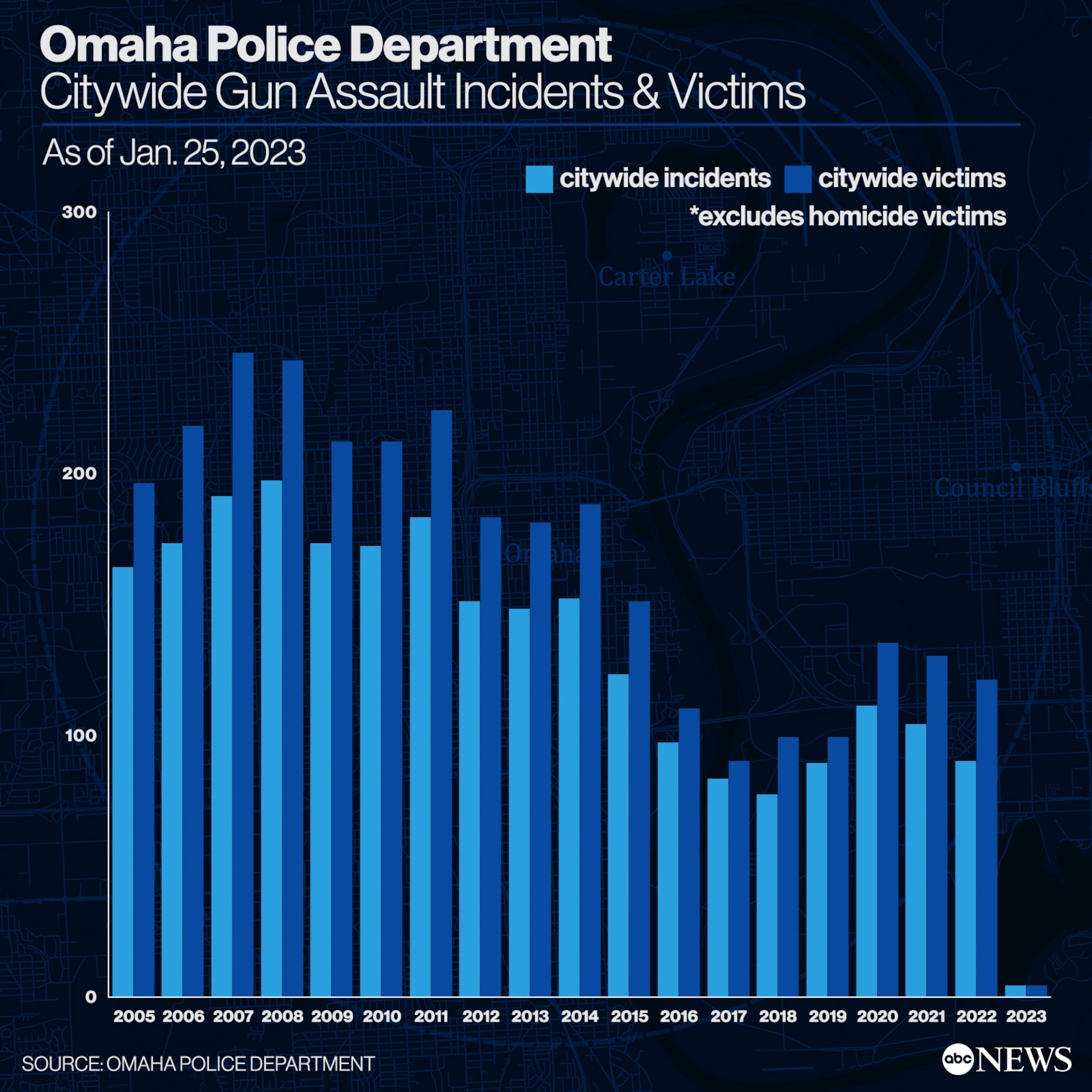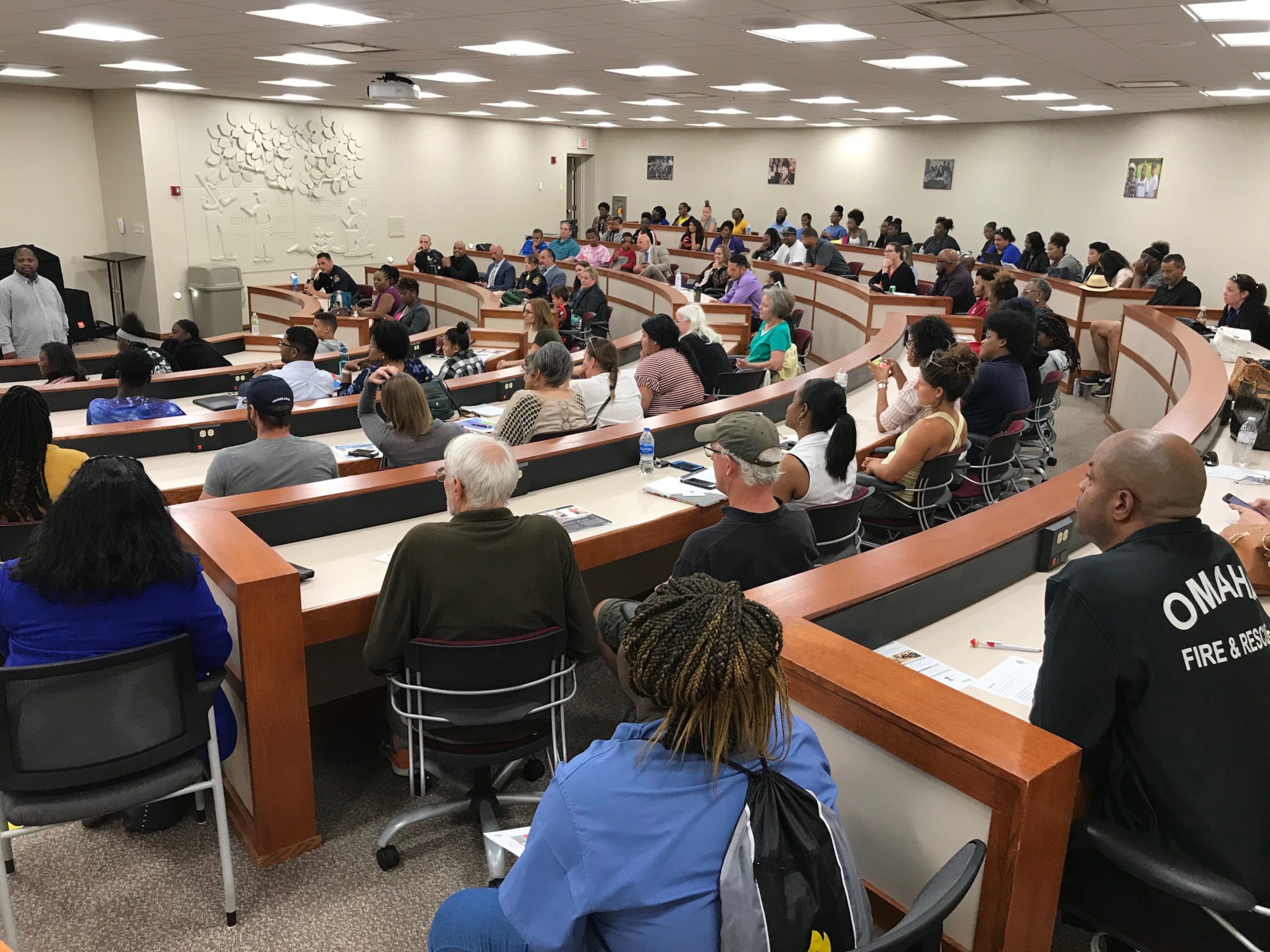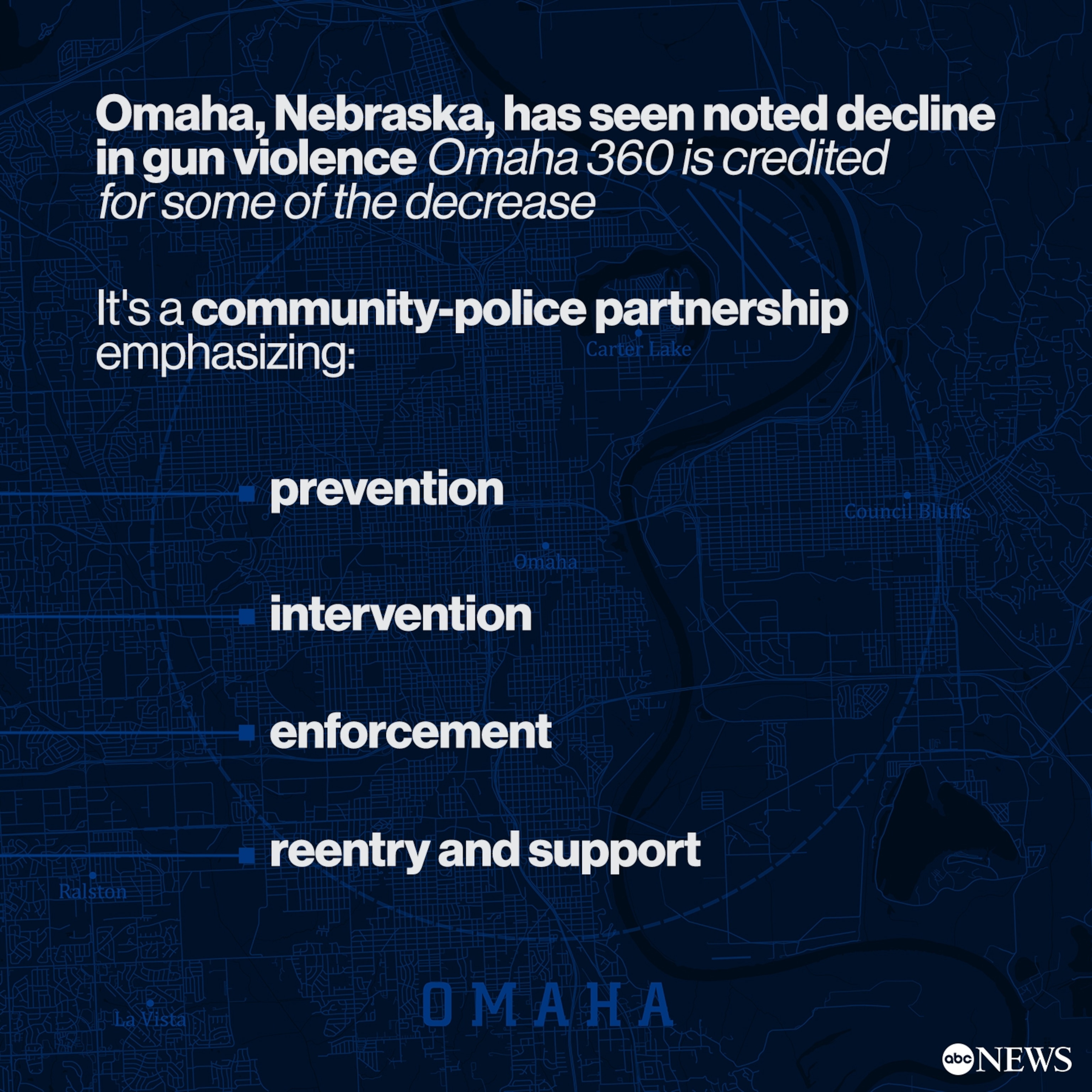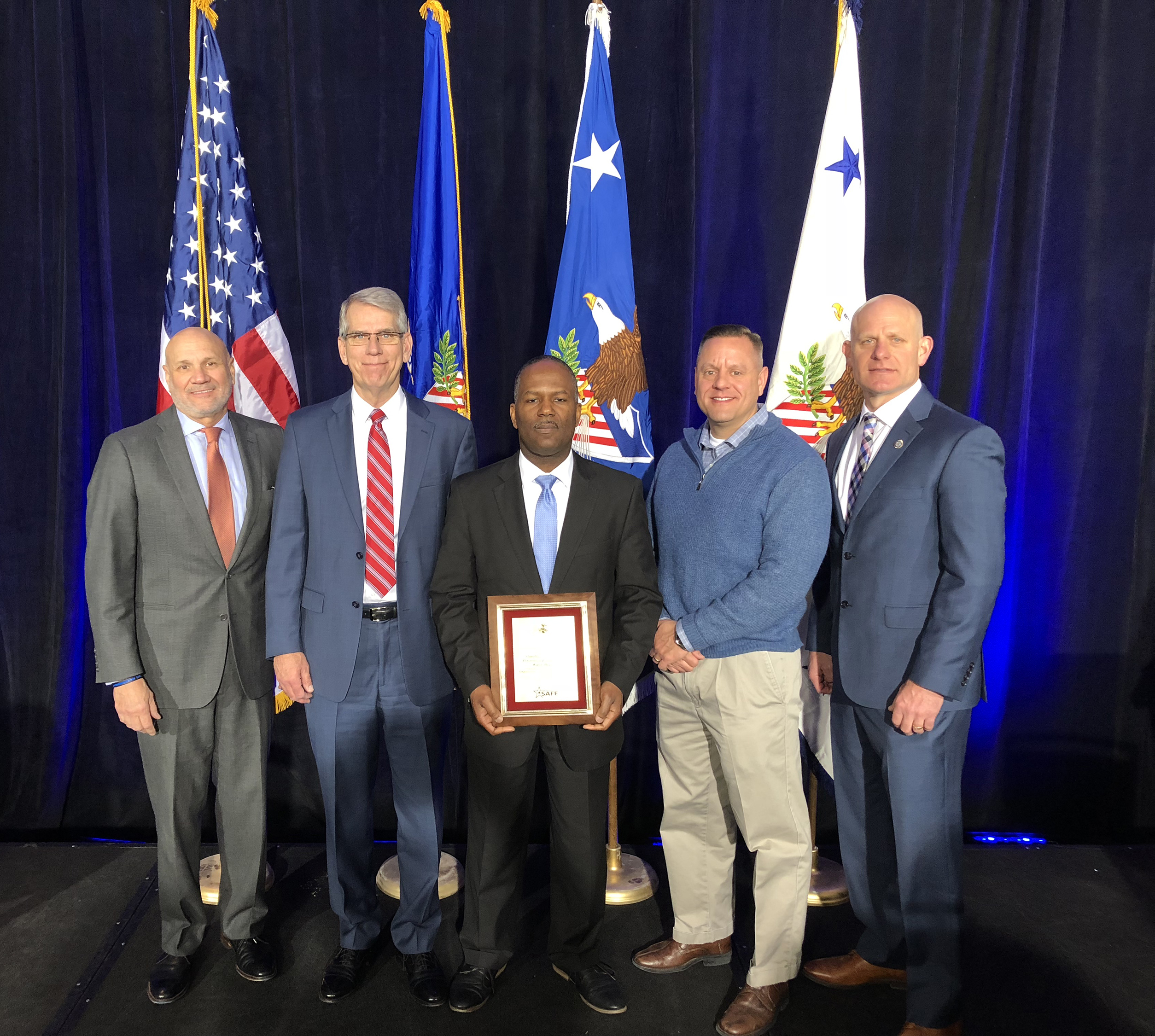How one city cut gun violence in half and may become a model around the country
Omaha, Nebraska, has seen a marked decrease in shootings.
More than 6,000 people have been fatally shot in the U.S. so far this year, according to the Gun Violence Archive.
While many lawmakers debate various solutions -- restrictions on firearms, increased mental health funding, investment for youth -- ABC News recently talked to community leaders in Omaha, Nebraska, where officials have seen a steady drop in reported gun violence over the past 15 years.
Police and advocates attribute some of that to Omaha 360 -- an initiative started in 2009 by the Empowerment Network that involves nonprofits, neighborhood associations, churches and local law enforcement.
"It really did help to build a lot of trust between the police and the community and just amongst these various organizations," Scott Gray, the deputy chief of the Omaha Police Department, told ABC News. "Empowerment Network is the hub, because it kind of pulls together all of these different organizations that by themselves tend to not stay connected and more effective."
The number of reported shooting victims in Omaha, which only includes people who survived, dropped from 246 in 2009 to 121 in 2022, with the lowest at 90 victims in 2017, according to data from the Omaha Police Department.
Citywide shooting incidents involving an individual or group in that same time dropped from 191 to 90, with the lowest at 77 incidents in 2018. (One incident can include multiple victims.) And homicide clearance rates were at 87% in 2022. The Omaha Police Department follows the FBI's definition of a cleared case, which is by arrest or by exceptional means, like the death of a known suspect.
Overall homicides in Omaha have also gone down over the last 15 years, according to police department data. Those statistics, which do not delineate different types of homicides, show that average annual homicides fell from about 38 from 2007-2012 to about 28 from 2017-2022.
Omaha 360's strategy is "collaboration, prevention, intervention, enforcement, reentry and support services," said Willie Barney, CEO and founder of the Empowerment Network. Barney said the program began as a small initiative with seven people, some from the Empowerment Network and others working for the city.


Initially, there was doubt among some in the police department about whether or not it would be effective, Gray said: "We were a little bit skeptical that any of this was going to work or that these were going to be programs that lasted."
But Omaha 360 became "the first really concerted effort with a lot of backing from the PD to get some kind of sustainable action in place in the city," he said.
Now, places like Boston; Chicago; Kansas City, Missouri; Little Rock, Arkansas; Minneapolis and Tulsa, Oklahoma, are having early conversations about what a similar program might look like in their cities, Barney said.
How it works
Omaha 360 is focused on addressing immediate threats of gun violence as well as the underlying issues that contribute to it.
"In all of our areas, whether it's education, violence prevention, housing, employment -- we identify agencies, organizations, churches, neighborhood groups that are working in that particular area, we bring them together [and] identify what the strengths are," Barney said.
A main component, according to Barney, is regularly connecting with the community and listening to input. Every Wednesday, Omaha 360 hosts an hour-long public forum with an update from law enforcement and community partners.
Attendees, usually around 80-120 people a week, go over crime statistics, specifically focusing on shootings, Barney said.
"Then we flip gears and say, 'OK, what's coming up over the next seven to 10 days?'" Barney said.
If there is something of concern the group is aware of, they mobilize resources preemptively to see who can respond. It could be a local church group or a violence intervention team or another group that can best help diffuse the impending situation.
The meetings are "a way to get everybody in the same room, discussing strategies weekly, with follow up items," said Gray, the deputy police chief.
Once a month, there is a larger Empowerment Network meeting open to the public. The interconnectedness of participating organizations allows the community to distribute resources without competing for grant funding and overlapping services, Gray said. (Barney said the Empowerment Network is funded by a mix of private and public monies, including from the city and state and philanthropic donations.)
"With 360, you have a moderator in the room," he said.

Having a moderator also allows the community to work through difficult situations and find common ground, Gray added, and set goals for the hundreds of organizations and groups involved.
The Empowerment Network and Omaha 360 also focus on reentry programs and employment opportunities for young people through initiatives like "Step Up Omaha!" that help 14-21-year-olds find jobs and work experience opportunities, according to the Empowerment Network.
Lack of employment was a top issue among young people that the group spoke with, Barney said, especially during the summer months.
"We've seen that given the opportunity, they will maximize that opportunity," he said. "We just need more of that."
"It really comes back to those poverty issues -- housing, unemployment, education," he told ABC News. "We really have gone upstream to address those issues, while also building better communication channels with the police department."
While the reported numbers have dropped, Omaha hasn't rid itself of gun violence.
On Jan. 30, for example, two Omaha officers were injured and one person was fatally shot after police responded to a report of a break in, ABC affiliate KETV reported. The next day, police responded to an active shooter incident at a Target in West Omaha. Police said the gunman was armed with an AR-15-style rifle and multiple rounds of ammunition and was fatally shot by officers after he opened fire in the store. No other injuries were reported.
'You're going to need a combination of strategies'
Thomas Abt, the founding director of the Center for the Study and Practice of Violence Reduction at the University of Maryland, believes that there's no one law or strategy that will fix gun violence.
"Ultimately, what you need on the ground is to fund a set of strategies that together have three elements: focus, balance, fairness," Abt told ABC News. Focus for the people at the highest risk; balance, meaning there needs to be an enforcement component as well as services and treatment; and fairness so that the prevention efforts are seen as legitimate.

"The country is not facing one gun violence problem," Abt said. "It's facing at least four" -- everyday community violence, domestic and intimate partner violence, mass shootings and suicide.
The latter accounts for the majority of gun deaths in the country, according to data from the Gun Violence Archive, which compiles and validates data from 7,500 sources, according to its website.
So far in 2023, there have also been 88 mass shootings, which includes incidents when victims survive, according to the archive.
"The thing that's hard to sometimes understand is that one particular policy might be effective in reducing one type of gun violence but not another," Abt said. "I think you need to do some things that are specific to each form of violence and then some things that are general to all of them."
A lot of strategies don't require new legislation or a lot of money but rather "really strong police-community partnerships focused on the highest-risk individuals in a particular jurisdiction," Abt said.
Gun licensing and permit-to-purchase legislation, even just for handguns, have been effective, too, Abt said.
With those laws, "we have good evidence to show reduced gun violence across the board," Abt said.
Changes in the police department
Omaha police have made changes of their own over the past decade, including working on violence intervention tactics.
"We always thought of our job as enforcement -- making that initial arrest -- and not necessarily being involved on the backside of it," said Gray, the deputy chief. "It all makes sense now. But certainly you didn't think about, well, what's this guy gonna do when he comes back to the community?"
"Since the beginning of [Omaha] 360, we work with a group called YouTurn," Gray said, referring to an organization that works to prevent and deter gangs and violence, according to their Facebook page.
The police department also teaches deescalation tactics, a common move among law enforcement across the nation to try and defuse potentially violent situations.
"A significant portion of our sworn law enforcement officers are crisis intervention team-trained," Gray said.
The department also has responders who are civilian mental health practitioners to go out on calls with officers, Gray said.
"We have five police precincts -- we have one mental health co-responder embedded in these precincts," he said. "They're very good at deescalating situations involving mental health."
In addition to offering a $25,000 crime tip, the highest in the nation, Gray said, the Omaha Police Department has also spent recent years developing trust within the community.
"We get a lot of tips just from the community because I think the level of trust is significantly higher than it was 10 years ago," Gray said.

Next steps
With more than 500 involved entities, Omaha 360 is looking to further strengthen its reentry program and work with the state on prison reform.
"Nebraska has had starts and stops on prison reform," Barney said. "I think everybody in the state, whether conservative or liberal or anything in between, realize that there's more that we need to do on the reentry side."
In recent years, Omaha 360 has worked more closely with the Nebraska legislature, Barney said, specifically state Sens. Justin Wayne and Terrell McKinney.
"They approved $350 million that would be specifically targeted to North and South Omaha, to address those root causes of employment, education, entrepreneurship, business development, revitalization of poor districts," Barney said.
Some of the funding came from the American Rescue Plan Act, the 2021 COVID-19 relief bill, and some came from the state general fund, Barney said.
"That will go a long way in helping us to address some of those issues that we've identified," he said.




